News
Hydrosol promotes stabilising systems for meatless products
26 Jun 2018Hydrosol claims its new stabilising systems make possible the simple, safe production of burger patties and many other products on existing production lines.

Demand for alternatives to traditional meat products is rising worldwide, notes Hydrosol. One reason, the company believes, is consumers’ growing nutritional awareness. Another is the growing world population. According to Hydrosol, more and more meat producers are adding plant-based products to their portfolios. The burger product category is very trendy right now, it says, and there is a lot of movement internationally with some spectacular announcements of product innovations. However, in many cases, implementing these involves very high investment in new product plant, Hydrosol claims. But, the company says, it doesn’t have to be that way. Hydrosol claims its new stabilising systems make possible the simple, safe production of burger patties and many other products on existing production lines.
Vegan burger patties are based on texturates that give the final product a hamburger-like texture. HydroTOP High Gel 30 is said to provide these texturates with the necessary binding. “The system is based on a tailored hydrocolloid fibre combination of emulsifying and stabilising components,” said Dr Carsten Carstens, Innovation & Product Manager for meat products at Hydrosol. “First an emulsion is made with HydroTOP High Gel 30, oil and water, that stabilises the texturate. This gives a compact, formable mass comparable to bound ground meat. This meat substitute mass can be seasoned to taste and produced on conventional machines like cutters or mixers, and then shaped as desired in normal moulding machines. HydroTOP High Gel 30 is claimed to be suitable for binding all normal texturates on the market. In addition, Hydrosol offers all-in compounds for the simple production of ground meat substitutes. “There are significant quality differences among texturates, which have a major effect on the texture of the final products,” said Carstens. “We have tested many texturates, refined them and taken the raw materials into our portfolio. That means customers can get the whole package of texturate plus binder, or just the binder to use with their own texturate.” Investments in complex extrusion technology, which can quickly run into the seven figures, are not necessary, Hydrosol says, noting that its all-in compounds contain all the ingredients needed for making vegan burger substitutes – texturate and binder plus flavouring, seasoning and colour. The final products feature classic meat flavour and product-specific aroma. The product portfolio includes soy-wheat as well as soy-free texturates.These all-in compounds can be used to make a wide range of meatless products, from burger patties, meatballs, köfte and cevapcici substitutes to vegan shish kebab. Meatless nuggets, schnitzel, filet strips and fish sticks and other breaded products are also possible. The ground product mass is freeze-thaw-stable and can also be used in ready meals. “The final products can be pre-cooked so that before eating they only need to be heated up in the oven,” said Carstens. “If the burger patties are frozen raw they can go directly into the frying pan. That’s a big advantage, especially for short order restaurants.” The vegan köfte and meatball alternatives are also sterilisation-stable, so they can be canned as ready meals without problems.Related news
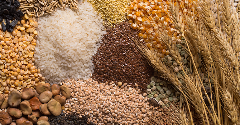
Sustainable grains present a healthy growth opportunity
3 Oct 2024
Food insights provider SPINS unveils the latest trends in the sustainable grains field, exploring how seven leading grains show healthy growth despite challenges in the global value chain.
Read more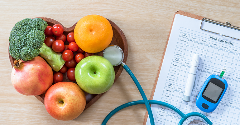
Will we see a wave of NPD that focuses on insulin management?
1 Oct 2024
As a new study finds protein and fats can help manage insulin, food manufacturers are building on emerging GLP-1 platforms and supporting nutritional guidance.
Read more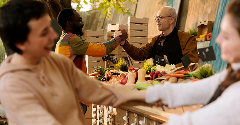
New environmental food scoring standards emerge
30 Sep 2024
EIT Food and Foundation Earth collaborate to launch environmental food scoring for products entering the global supply chain.
Read more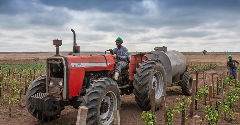
Africa progresses with food transformation strategy
19 Sep 2024
Large-scale efforts are underway to drastically change the African food sector with a $61 billion (€55 bn) set of proposed transformation plans to be implemented across forty countries. Yet there are concerns that this initiative severely jeopardises s...
Read more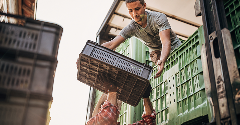
European Commission releases new supply chain recommendations
6 Sep 2024
The European Union’s (EU) legislative arm publishes its latest guidance on protecting the market’s food supply chain against current and future crises.
Read more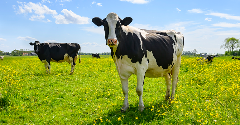
Tesco trials methane mitigation supplement for dairy cattle
5 Sep 2024
Tesco is trialing a methane-reducing feed supplement for one of its key UK dairy farms, sustainable UK milk producer Grosvenor Farms.
Read more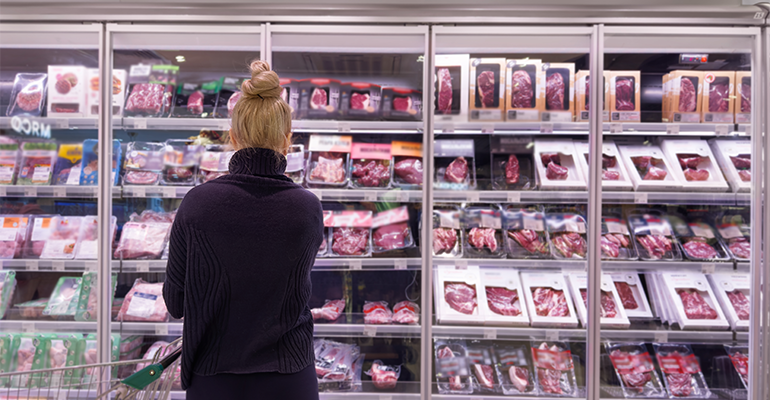
European consumers want more freedom to choose biotech-based food
3 Sep 2024
Survey findings point to growing levels of interest in cultivated meat as European consumers say they want the freedom to choose the lab-based products.
Read more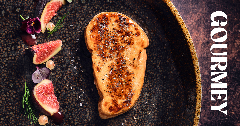
Will ‘foie gras’ become the EU’s first approved cultivated meat?
20 Aug 2024
French startup Gourmey has submitted its cultivated foie gras for approval in the European Union (EU), signalling the first application of its kind in the region.
Read more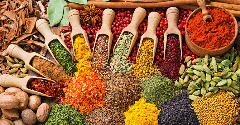
Europe gravitates to African spices
19 Aug 2024
Shipping delays, limited production output and climate change impact Europe’s spice supply, creating opportunities for African brands to enter the captive market.
Read more
Paris Olympics: Food and beverage brands champion health, fun, and sustainability
5 Aug 2024
Food and beverage brands are aligning with the Paris Olympics 2024 Food Vision, which emphasises sustainability, local sourcing, and plant-based diets.
Read more